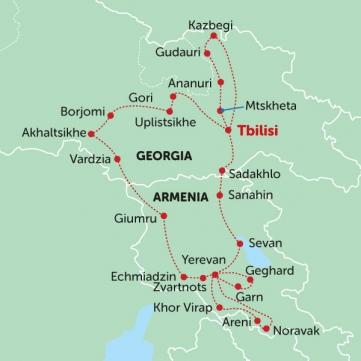Book NOW for $1 £1 €1 • Flexible Payments • No Change Fees • Private Departures Available
- Home >>
- Georgia Travel Advice
Georgia Travel Advice
Getting to Georgia
Georgia, or ‘Sakartvelo’ as the Georgians call it, is a beautiful country on the edge of Eastern Europe in the Caucasus region. Georgia borders the Black Sea, Russia, Turkey, Armenia and Azerbaijan.
- London to Tbilisi will take around a 5 hour flight
- Los Angeles to Tbilisi takes around 21.5 hours
- New York to Tbilisi takes around 13 hours
- Cape Town to Tbilisi takes around 17 hours
- Sydney to Tbilisi is about a 24 hour flight
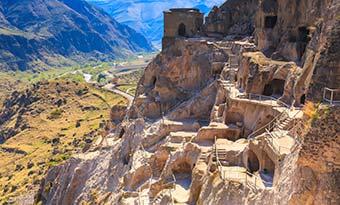
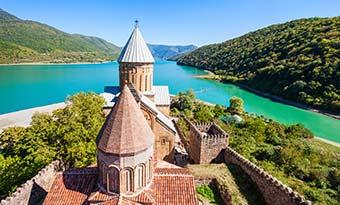

Main airports
in Georgia
There are three main airports in Georgia for international flights. These are: Batumi International Airport (BUS), Kutaisi International Airport (KUT) and Tbilisi International Airport (TBS).
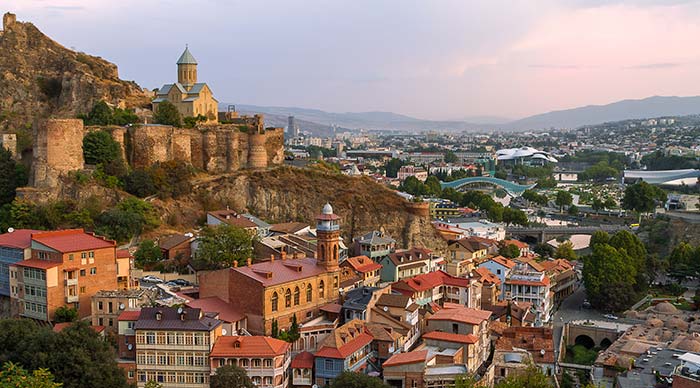
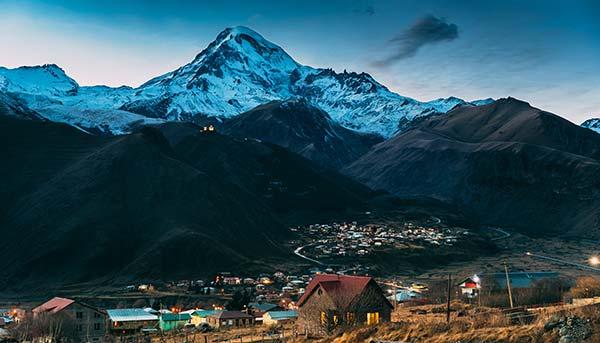
Geography &
landscape of Georgia
For such a small country, Georgia has an extremely diverse landscape. Much of Georgia is made up of the southern slopes of the Caucasus mountains - the perfect place for hiking. The rest of the country is a mix of rain forests, swamps, glaciers, semi-arid plains and marsh forests. Add that to the beautiful beaches lining the Black Sea and Georgia seems to have it all.
Culture, religion
and etiquette
Georgia was the second country in the world to adopt Christianity as their official state religion, and over 80% of the population still identify as Christian - most belonging to the Georgian Orthodox Christian Church. 10% of the population identify as Muslim, 3.9% are American Apostalic, and 0.5% are of the Catholic faith.
Georgian families are predominantly based around the nuclear family structure, however recently there has been a big increase in grandparents moving back in the home to help take care of the children. In more rural, mountainous areas, families tend to be much larger and more extended with the entire family working at the farm. The family spirit is a very strong part of the Georgian culture. Any important events such as birthdays and weddings include the entire family, even up to the fourth generation.
In the capital of Georgia, Tbilisi you’ll find that women are modern and well-dressed. In the more rural regions many people still wear traditional clothing and headscarves. Georgia is one of the most warming, hospitable countries in the world. Having guests is seen as a blessing, so you will often find hosts to be exceptionally helpful, kind and overly generous with their food! It’s a lovely country to be in.


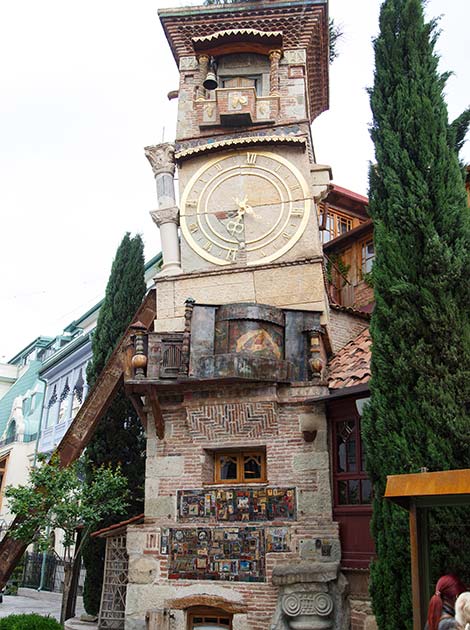
Languages spoken
The official language of Georgia is Georgian, however approximately 14 languages are widely spoken throughout the country. These include English, Russian, Azerbaijani, Assyrian, Svan and Urum. You’ll find that most people working in tourism related services will speak English but much less so everywhere else, especially in the countryside.
Capital city
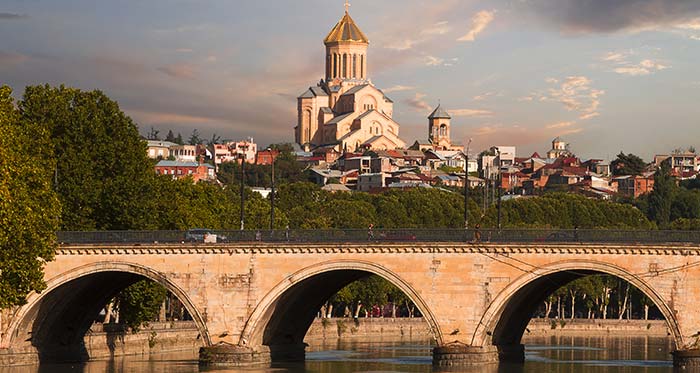
Tbilisi
The capital city of Georgia is Tbilisi. Situated on the bank of the stunning Kura River and equipped with a vibrant nightlife, a charming Old Quarter and plenty of sites to see. The city has a population of 1.1 million and is 17km from the Tbilisi airport.
Top tip!
Keep small notes and change on you for smaller purchases, transport and tips.
Visas
In order to enter Georgia, everyone needs a valid passport. Over 90 nationalities don’t require a visa for a stay of up to 365 days - see here for the full list. EU citizens can enter Georgia just with their passport or national identity card. If you do need a visa, you can obtain one online here.
ATMs & Money
ATMs can be difficult to find outside of the larger cities, so make sure you take advantage of this as you pass through. Many places such as restaurants, cafes and guest houses don’t accept card payments so make sure you have enough cash to cover everything.
Vaccinations & travel health
The CDC and the WHO advise for the following routine vaccinations to be up to date when visiting Georgia: measles, mumps and rubella (MME), tetanus, diphtheria and pertussis (Tdap), chickenpox, shingles, pneumonia, influenza and meningitis. They also recommend the following travel vaccinations: hepatitis A, hepatitis B, rabies and polio.
Is it safe to drink tap water in Georgia?
This is a tough one. Whilst many places in major towns and cities have perfectly fine drinking water, many more rural destinations may not. It is best to either ask your hotel for their advice or stick to bottled water if you want to be on the safe side.
Electricity and plugs in Georgia
The sockets and plugs in Georgia are type C and F, both have two round prongs. The standard voltage is 220V with a frequency of 59 Hz.
Emergency calls
We always advise passengers to have a few important phone numbers saved in case of emergencies. The emergency numbers to know in Georgia are:
- 112 provides every emergency service (ambulance, firefighters and the police)
- 111 is the number for the fire service
- 122 is the number for the police service
- 113 is the number for the ambulance service
Travelling as a single woman in Georgia
Solo travellers will be pleased to know that Georgia is ranked the 7th safest country in the world, with a significantly low crime rate.
Of course, as with anywhere in the world, always be extra careful in cities and don’t walk around on your own at night. Some areas are generally safer than others. Tbilisi is very used to tourists and solo travellers and people will often just approach you for a conversation, simply because you are a tourist.
As with most places in Eastern Europe, wearing revealing clothing can send some unwanted attention and possibly offend the older generation.
Wifi and internet access
In most parts of Georgia you will find that hotels and guest houses have either wifi or computers connected to the internet which you can use, however,these are not always free. Almost all towns also have internet cafes which charge around $0.60 per hour. In major towns and cities you will also find that many restaurants, cafes and bars offer free wifi too.
Time zone
Tbilisi, Georgia
Georgia (GST or GMT+4) is 3 hours ahead of London (GMT), 11 hours ahead of Los Angeles, and 8 hours ahead of New York. Georgia runs on Eastern Standard Time and does not switch to Daylight Savings Time. Visit timeanddate.com to calculate the time difference from your current location.
Getting around
Trains
The rail network in Georgia is stable, reliable and is the main source for connecting cities with smaller towns along the way. Trains usually run twice a day and tickets can be purchased online.
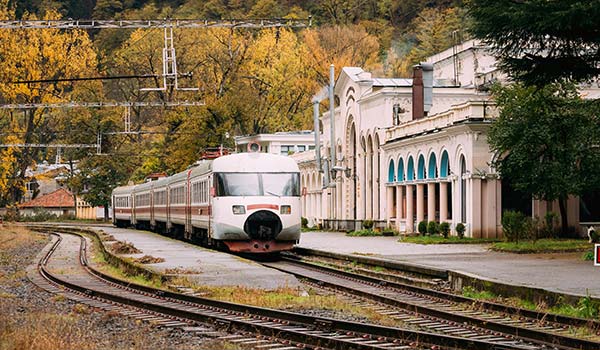
Taxis
Taxis are in abundant supply in Georgia and they are very easy and very cheap to use - just flag one down. Make sure you negotiate your price before getting in.
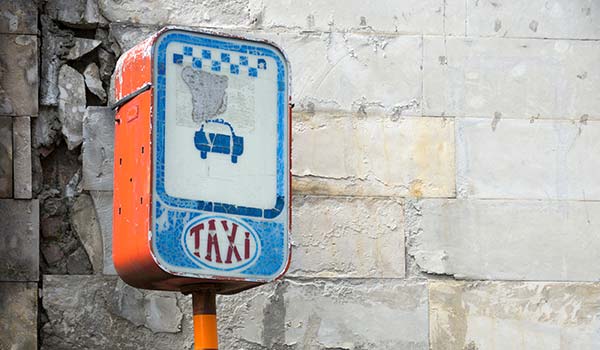
Metro
The metro in Tbilisi is a great, cheap way to get around the city and it’s really simple - there are only 2 lines which cover almost the entire city. You just need to purchase a MetroMoney card for 2 GEL and top it up. To put it into context, a 90 minute journey costs only 0.5 GEL!

Buses
The bus network in Georgia is really good, especially in cities where buses travel pretty much everywhere. You can find detailed timetables at bus stops. You can also use a MetroMoney card for buses, or buy a ticket from the driver once you get on. It costs the same price as the Metro.
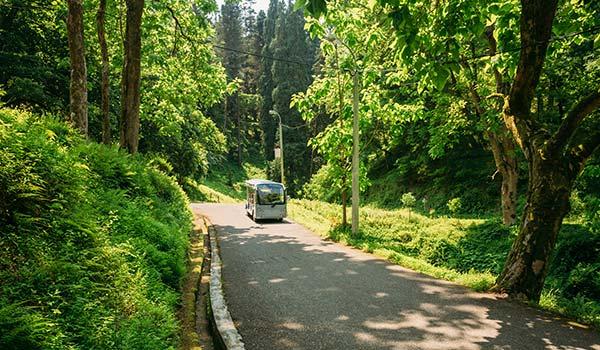
Marshrutkas
Essentially, Marshrutkas are small vans or minibuses. They are a very cheap way to travel but quite uncomfortable for long journeys. They will pretty much drop you exactly where you want to go. You can also use your MetroMoney card to pay which costs 0.65 GEL for 2 rides, or you can pay in cash costing 0.80 GEL. To use one, just flag them down like you would a taxi.
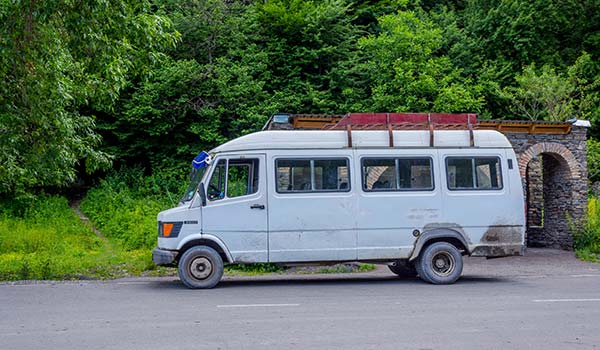
Car Hire
Car hire is a great way to travel the beautiful Georgian countryside if you want flexibility but it is not always recommended. First off, the road conditions are not great and drivers can be a little crazy - so you must be a confident driver yourself. Many local rental companies know that accidents in Georgia are common and so attach unwanted policies in the contract. If you do wish to hire a car, do thorough research on rental companies, read all the fine print and ensure you have decent travel insurance.
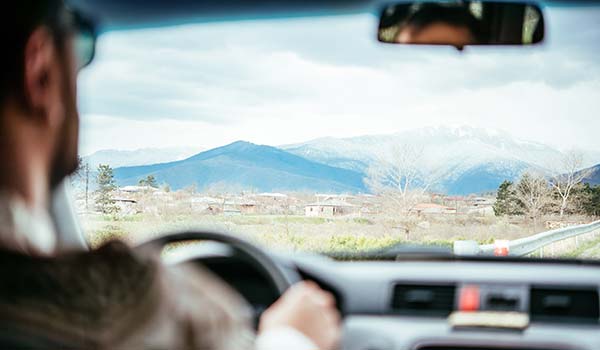
History
The country of Georgia was first populated 1.8 million years ago and is the home of the oldest European, human remains. It was also a key stop on the famous Silk Road. During the early 1900’s, Georgia was seen as a very progressive civilisation in many ways. It was one of the first places in the world to grant women the right to vote. In 1921, Soviet Russia occupied Georgia and created the Georgian Soviet Socialist Republic. Georgia became and has remained independent since1991. Independence did come with its pitfalls however, and Georgia fell into economic crisis but regained development by the year 2000.
Featured Tours





